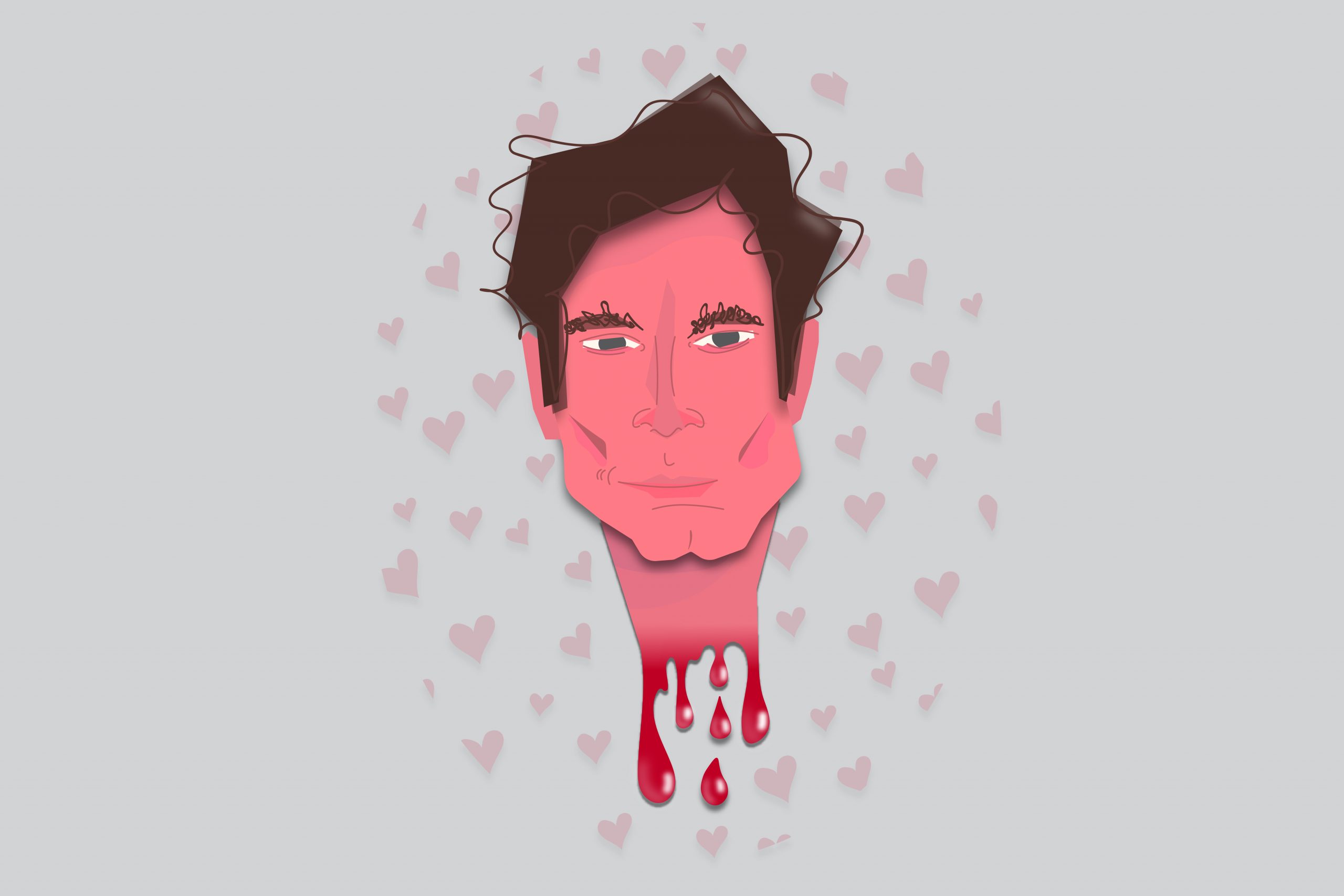It’s no secret that our society possesses a morbid fascination with sadistic killers and the atrocities they commit. From books, films and television to podcasts and YouTube videos, tragic tales of terrible crimes — both true and fictional — titillate and tantalize countless consumers, hungry for the next display of just how evil people can be. Netflix’s “You” puts viewers in the shoes of narrator and protagonist Joe Goldberg, an obsessive stalker, serial killer and psychopath extraordinaire, as he pursues his warped idea of “love.” But despite his cruelty and manipulation, thousands of fans romanticize him as the ultimate devoted lover, reflecting an unfortunately all-too-real trend that sees women idealize and fall in love with infamous monsters.
The critically and commercially successful series follows Joe’s crazed internal monologue as he targets his “dream girl” and decides to do anything to win both her affection and her personal agency. When I say anything, I mean it literally. This creep spends every second of his free time stalking his victim, trolling her social media, watching her through windows and a telescope and plotting ways to insert himself into her life while taking out the competition for her attention.
He hacks phones and computers, breaks into places of work and residence, manufactures meet-cutes, compulsively lies about his personality and identity and manipulates his victim to get what he wants. And, of course, he leaves a lot of dead bodies in his wake. Platonic and romantic companions of his current target, beware; he has no problem eliminating his rivals by kidnapping or murdering anyone who gets in the way of his goal of total control.
As we watch Joe carry out unspeakable acts and ruin lives without remorse, “You” treats us to an intimate look at the inner workings of a psychopathic egomaniac through his near-constant narration. From his creepy analysis of his victim’s beauty and body to his callous judgment of the people who surround her to his delusional rationalizations of his heinous actions, “You” focuses almost entirely on his deplorable perspective.
And in Joe’s mind, as his actor Penn Badgley puts it, he’s “the hero of his own story,” just like “every serial killer is.” He’s the suave male lead in a stereotypical rom com, where nothing supersedes his “destiny” to be with the object of his obsessive affection. He makes some mistakes, but his charm, wit and handsomeness more than make up for it. He swoops in and saves the girl from her crappy boyfriend and selfish friends. He’s the only man who “gets” her, the only one willing to completely commit himself to her. One director/cinematographer, Lee Toland Krieger, describes his intention to disguise the horror story as one of love: “I wanted something that felt like a great New York love story, just with a very disturbed protagonist.”
“You” purposefully positions Joe as the protagonist to delve into the complexity of both his psyche and audience reactions to it. We laugh at his funny quips, we relate to his “old soul,” we dislike his enemies, we empathize with his sensitivity and we sympathize with his traumatic childhood. And throughout the show, we even find ourselves rooting for him. Because the little voice in his head serves as our guide to his world, we sometimes get wrapped up in his delusional narrative, inspiring a compelling cognitive dissonance when he commits objectively evil crimes.
But some fans take the sympathy and complexity a little too far. One of the latest internet crazes has been a widespread adoration of the character, much to the tongue-in-cheek chagrin of Badgley. The attractive actor has inspired legions of fangirls to profess their love for his nefarious character. One such fan even tweeted: “I want someone to love me the way Joe loves Beck [his first victim].” Another exchange featured someone lamenting, “Said this already but @PennBadgley is breaking my heart once again as Joe. What is it about him?” Badgley replied with a quick quip, “A: He is a murderer.”
After yet another fan responded with “but we can do nothing if you’re a hot murderer lmao,” Badgley declared: “Then we got nothing left. ‘Thanks 2019 but we’ll take the check plz’ – Humanity.” Despite his distaste for it, this admiration for Joe is exactly what he and the showrunners envisioned happening. Badgley has described “You” as a “social experiment” testing “how far [we are] willing to go to forgive an evil white man.”
Apparently, pretty damn far. But fanatic romanticizing of despicable killers isn’t reserved for the world of fiction. In fact, the response to “You” is emblematic of a far more consequential phenomenon where women become infatuated with real-life psychopaths. A simple Google search of “serial killer fans” or something to that effect will turn up millions of results, ranging from dedicated Tumblr fan pages of murderers to endless articles decrying their existence.
From Jeffrey Dahmer to Ted Bundy, “stans” of cold-blooded killers litter the Internet. They sing praises of their idols, rationalizing and excusing their crimes — even glorifying them sometimes — based on their choice killer’s life experiences, personality and physical attractiveness. The range of devotion is wide and diverse, but most are connected by a belief that these men were inherently good, even if their merit was buried deep beneath an evil exterior crafted by external influences.
While the Internet has allowed these individuals to find likeminded people and form troubling communities, fans of murderers have tainted media for decades. Reasonably attractive and reportedly very charismatic, Ted Bundy’s televised trials attracted legions of fangirls who’d sit in the back or line the courthouse steps in hopes of catching his eye. He received letter after letter from devotees right up until his execution. He even married one named Carole Ann Boone and fathered a child with her while on death row.
Thomas Hobbs, a writer for New Statesman, went undercover and “joined three secret Facebook groups—Stand By Aileen [Wuornos], McDahmer’s, and Ted Bundy Hardcore” to unearth the reasoning for the deranged dedication. And unsurprisingly, it wasn’t pretty. An anonymous interviewee admitted her obsession had driven her to visit Lake Sammamish, the site “where Bundy abducted, raped and murdered some of his final victims.”
In response to Hobb’s logical questioning of her devotion despite her shared demographic with the many young women Bundy brutalized, Rebecca responded that her “biggest issue is when people call Ted a sociopath or psycho.” She doesn’t “think the Ted Bundy who killed people is the real Ted Bundy. It was a part of who he was, but it didn’t define him.” This propensity to detach serial killers from their crimes is a hallmark of the fandoms.
But how could a person overlook the fact their idols are literal rapists and murderers? Katherine Ramsland, a professor of forensic psychology who has interviewed women in love with killers, has offered several theories: “Some believe they can change a man as cruel and powerful as a serial killer. Others ‘see’ the little boy that the killer once was and seek to nurture him.”
In the words of David Schmid, author of “Natural Born Celebrities: Serial Killers in American Culture,” the psyche of these fans boils down to a savior complex and an extreme obsession with the “bad boy” archetype. These women mistakenly believe they personally have the power to “save” these monsters. While the objects of their affection may have been inconceivably cruel to others, fans hold steadfast to the belief the man would never do those things to her.
But as Joe Goldberg proves, these killers are all the more likely to harm the ones they care about. And while the second season delves into his struggle to put his murderous past behind him and become a good man, he consistently fails and falls prey to the same controlling, violent urges. He may be complicated and sometimes sympathetic, going out of his way to protect the endangered children he encounters, but at the end of the day, he’s just as Badgley describes: “unsavable.”
“You” exemplifies the epitome of our culture’s complicated relationship with killers who, if nothing else, are still human. It’s natural to sympathize with even the darkest characters when their humanity is undeniable. But that doesn’t mean we can or should excuse evil behaviors, even if they’re carried out by the hottie from “Gossip Girl.” Badgley put it best when “he called the tendency to be attracted ‘overwhelmingly’ to Joe a ‘Rorschach test of a kind for us,’ adding: ‘And we’re failing, y’all.’”
















